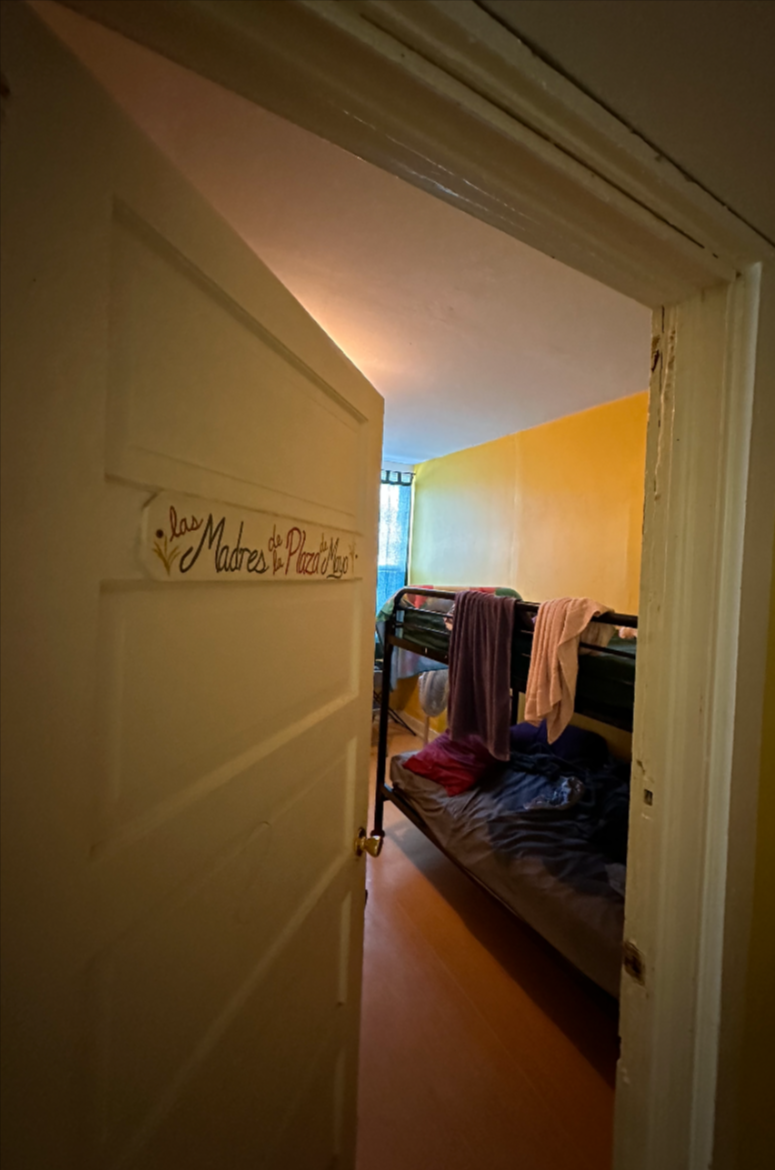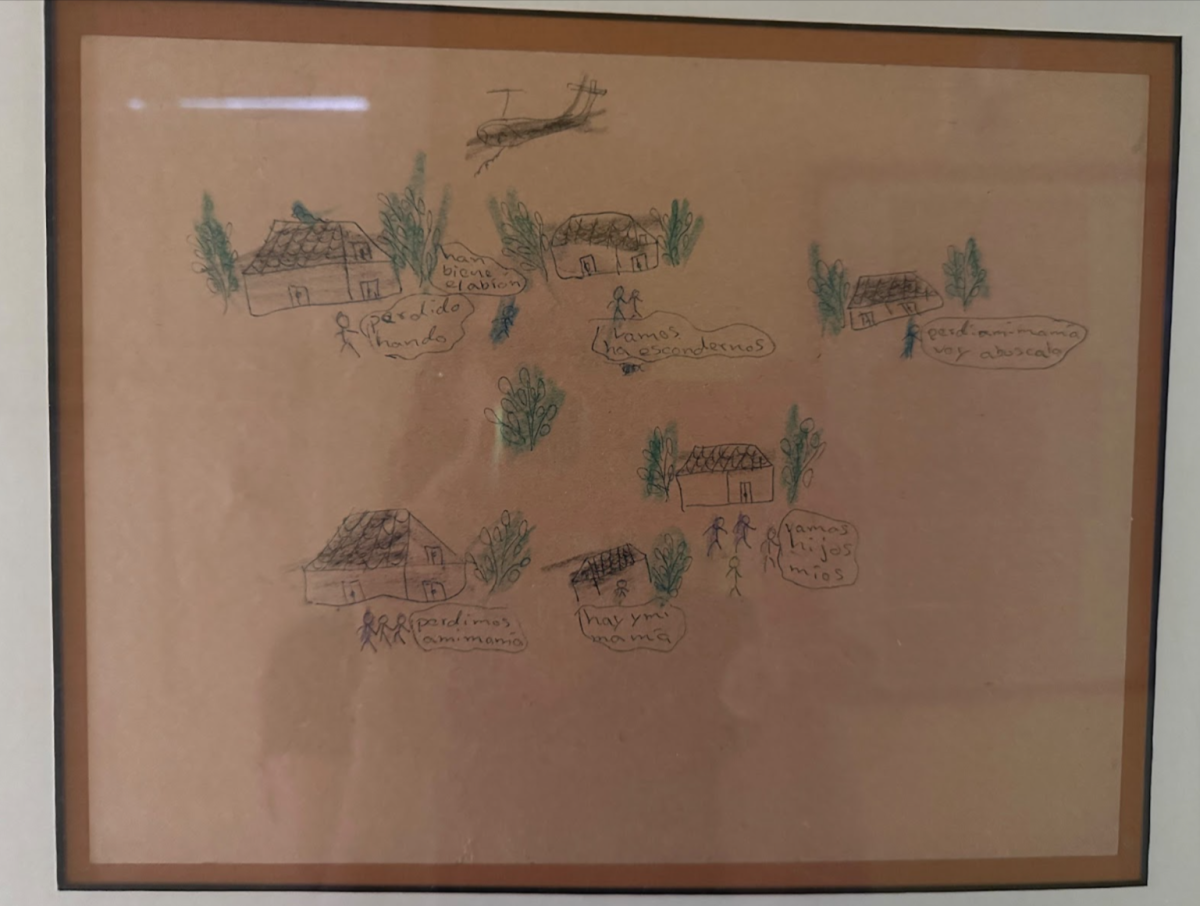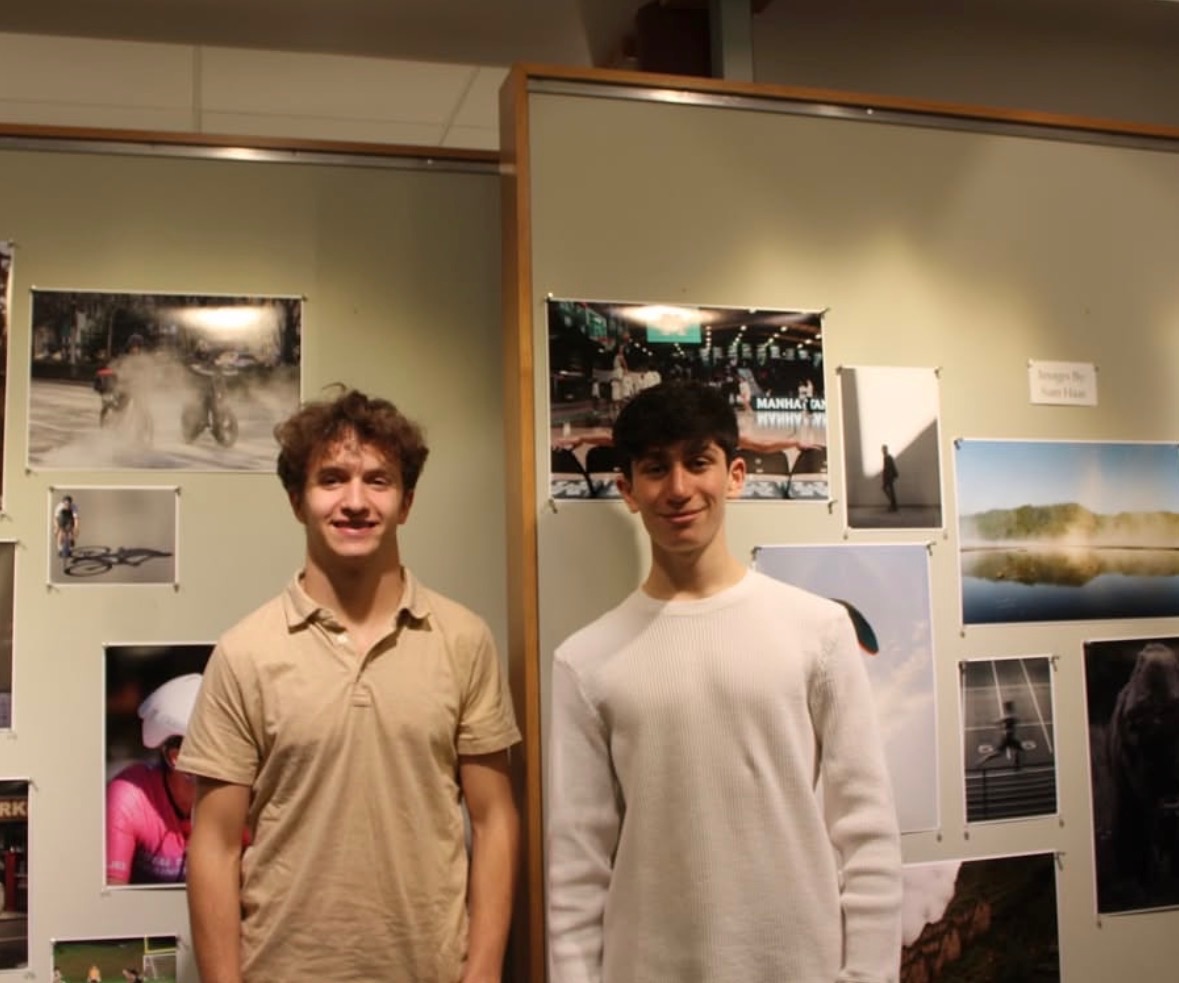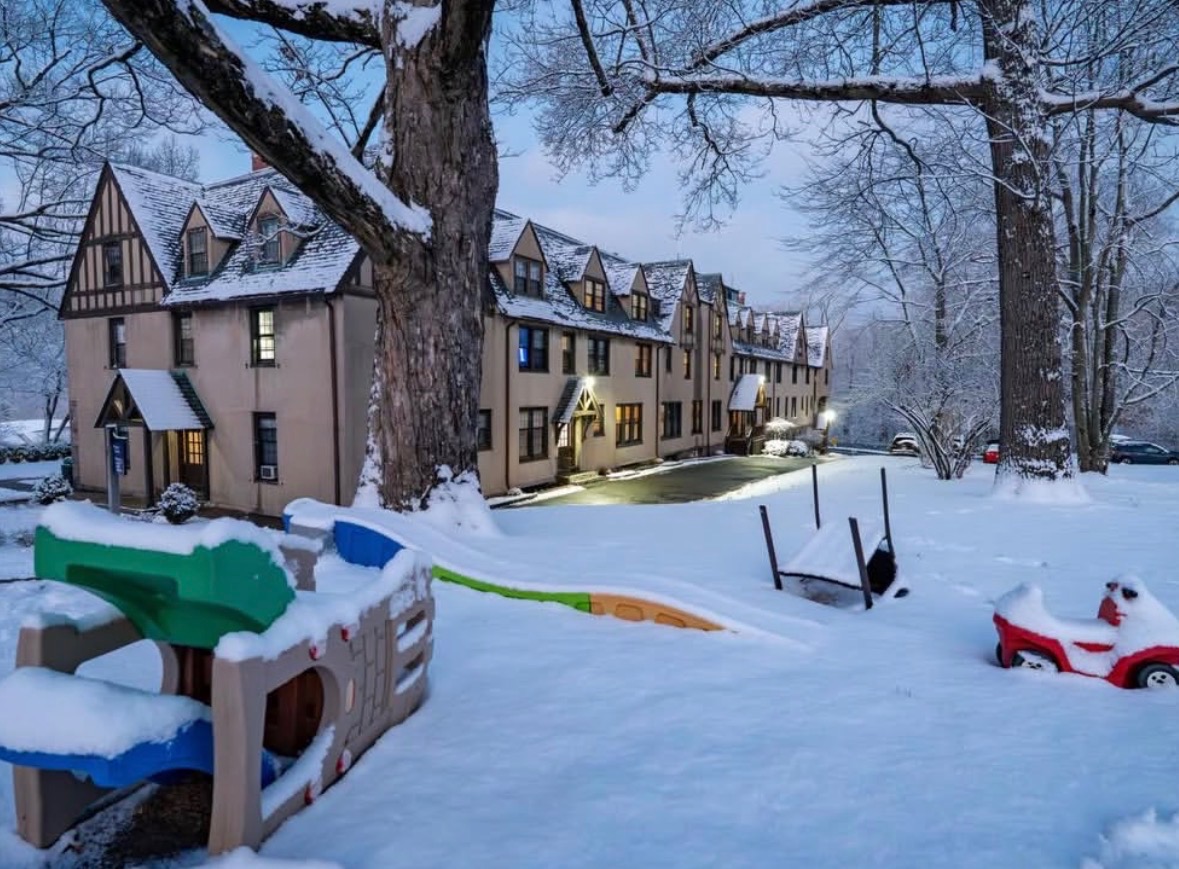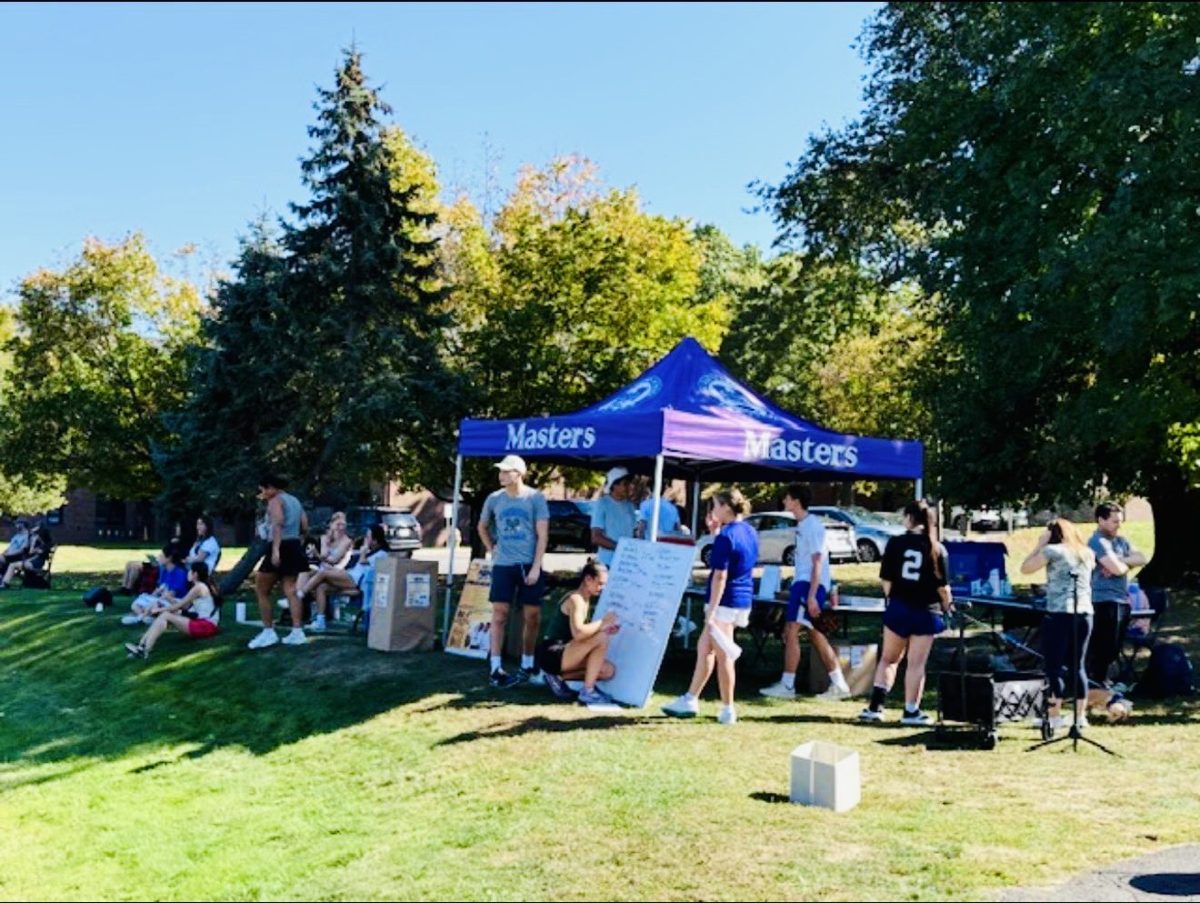At a Center for Inclusive Excellence (CIE) morning meeting, Upper School English teachers, Pilar Mendez Cruz,’12 spoke alongside Mariah Peña in a discussion about immigration, accompanying other programming for the “I Stand With Immigrants” initiative. In her speech, Mendez Cruz discusses her experience as a volunteer at the Mexican-American border in El Paso last summer.
Having experienced Masters as a student (class of 2012) and teacher, Mendez Cruz described feeling inspired by recurring discussions surrounding immigration processes and experiences, specifically centering borders themselves.
“I have followed and studied immigration for a long time, actually starting in high school in Mr. Ives’ Masters Thesis class,” Mendez Cruz said. “More immediately I was teaching a lot of texts in AMSTUD (American Studies) and in my 10th grade sections that deal with immigrant stories, specifically around the border and around arriving in the United States. I think through listening to some of my students’ reflections and answering their questions and being really involved in that in the spring of last year I just had this feeling that I really wanted to go.”
Mendez Cruz volunteered with an organization called Annunciation House, which allowed her to both live with and assist refugees as they oriented themselves to El Paso, found work, and navigated immigration proceedings.
“Sometimes they weren’t even aware that they had now entered the United States and were legally allowed to be there, because they might have been apprehended by border patrol and then had been in an ICE detention center and without a lot of translation being done for them,” she said. “A really important role for volunteers is when people arrive, to just orient them and go over their paperwork, and say: Okay, this is what this means, this is when you have to go to court.”
The population of El Paso consists of about 202,000 immigrants, with 91% arriving through the Mexico border. Amid immigration rates that many cities have deemed to be “crisis levels,” immigration policy at the border is in a state of constant flux.
“The policy and immigration laws are always changing, so what I had gotten my head wrapped around in the first three months I was there last fall had completely changed by the time I returned in the summer,” Zoë Bayer, another volunteer for Annunciation House, said. “The Title 42 policy was lifted and new policies were in place. So just understanding the procedures of where people were coming from and what’s going and who’s being let through and who’s being deported was complex and very intentionally confusing.”
Bayer met Mendez Cruz volunteering at the Casa Bides(?) shelter last summer after having worked in refugee services in New York City.
“There’s such an overwhelming need, so it feels really necessary. I also think that the Annunciation House shelter network is unique, where you’re living physically in the shelter with the guests that you’re welcoming,” she said.
Bayer noted that this system allowed her to develop a closer emotional connection to fellow volunteers, like Mendez Cruz, and to the refugees that she was sharing a space with.
Mendez Cruz echoed these sentiments, adding, “I had my own room, and other than that we shared everything. We shared bathrooms, we shared the kitchen, we shared the living room, we shared outdoor space, and so we shared a home.”
Upon returning to school, Mendez Cruz worked to open up the service journey that she had embarked on to the wider Masters community. This spring break, students will have the opportunity to travel to Texas and participate in the Border Awareness Experience (BAE) that she had participated in, allowing them to visit US Border Patrol, meet human rights activists, and stay in a migrant shelter to engage with asylum seekers.
In their mission for the program, Annunciation House wrote, “The Border Awareness Experience (BAE) is an immersion experience meant to raise consciousness about the issues facing the border, such as immigration, economic development, human rights, and social justice.”



